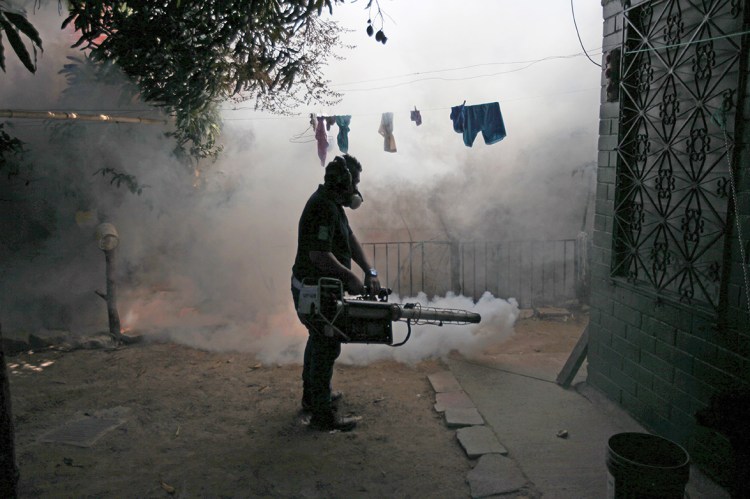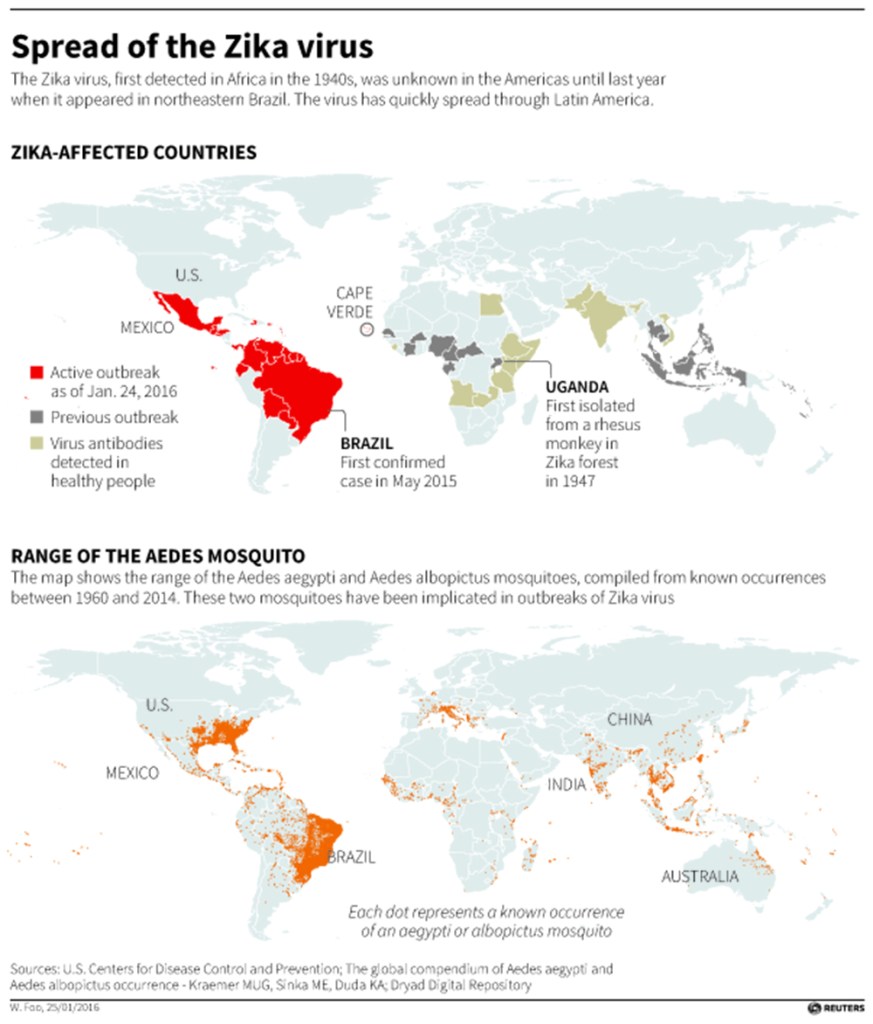RIO DE JANEIRO — As alarm over mosquito-borne viruses such as Zika increases in Brazil, some mothers in the country are opting for an unusual protective measure: mosquito-resistant baby clothes.
It is a sign of how scared Brazilians are, not just over Zika – which the government blames for an outbreak of microcephaly, a condition associated with incomplete brain develoment — but also the spread of the dengue and chikungunya viruses, carried by the same mosquito.
Since mid-December, health workers and soldiers have conducted 7.4 million home and business visits in a campaign to kill mosquito larvae and to educate people on prevention measures to stop the insects’ breeding.
Meanwhile worried mothers have been buying cotton baby clothes developed using nanotechnology and containing micro-capsules that release a natural repellent made from citronella oil, which is produced by different types of grasses. Sales of the “Baby Protect” line, produced by the GBaby brand at its factory in Londrina, in southern Brazil, have rocketed, the company says.
“Sales exploded. Today we have delivery problems,” said Fábio Pereira, commercial director at GBaby, which produces Baby Protect clothes as part of a line called Mini & Kids. In the past four months, sales have increased 150 percent, to 20,000 pieces a month, he said.
He said the company’s mostly middle-class buyers are concentrated in the northeast, where the bulk of Brazil’s microcephaly cases have been reported. As of Jan. 16, 3,893 suspected cases of Zika-related microcephaly had been reported in Brazil. Even though confirmed cases of microcephaly are likely to be lower – 55 percent of reported cases have been discarded after an investigation – the Zika epidemic has caused panic in Brazil and is now spreading through the Americas.
The Baby Protect line was launched six months ago, before the microcephaly outbreak, with an eye on a dengue epidemic in Brazil in the first months of 2015. Dengue has been in Brazil for decades, but there has been an increase in cases in recent years. In 2015, Brazil reported 1.6 million probable cases.
Mothers are also scared of chikungunya, a virus, like Zika, that first appeared in Africa and reached Brazil in late 2014. In 2015, Brazil had almost 21,000 suspected chikungunya cases. As well as the flu-like symptoms of Zika and dengue, it causes joints to swell painfully, and sufferers can have problems walking for months afterward.
Brazil is in a deep recession, and more than 300,000 companies closed last year– the highest number in a decade. “With the crisis in Brazil, sales are not so good. But with this, sales are great,” said GBaby’s Guerra.
But some doctors have questioned the effectiveness of the clothing’s repellent qualities.
Jesse Alves, a specialist at the EmÃlio Ribas Institute of Infectious Diseases, a government hospital in Sao Paulo, has studied repellents such as permethrin, used on clothing. He said that citronella is much less effective than man-made products and asked whether it would remain effective for 30 to 50 washes, as its manufacturers claim, and what kind of tests it had undergone.
“Within repellents, citronella is one of the weakest,” Alves said. “The question is whether the tests were done adequately, comparing this product with another.”
Pereira said testing was done by the company that developed the nanotechnology and supplied the micro-capsules, but he did not know technical details and declined to reveal the developers’ name.
Other Brazilians have turned to more conventional protective measures in the face of the outbreak of mosquito-borne diseases.
Sales of the Exposis brand of insect repellent, often recommended for visitors to the Amazon, have soared 2,200 percent in the past four months, according to Paulo Guerra, general director for Brazil for Laboratório Osler, the French company that produces it.
The company had already stocked up in anticipation of another dengue epidemic for 2016. Then, in late November, the Brazilian government said it believed there was a link between Zika and microcephaly – and sales went through the roof.
“It is an explosion because this situation is a tragic situation,” Guerra said.
Send questions/comments to the editors.




Success. Please wait for the page to reload. If the page does not reload within 5 seconds, please refresh the page.
Enter your email and password to access comments.
Hi, to comment on stories you must . This profile is in addition to your subscription and website login.
Already have a commenting profile? .
Invalid username/password.
Please check your email to confirm and complete your registration.
Only subscribers are eligible to post comments. Please subscribe or login first for digital access. Here’s why.
Use the form below to reset your password. When you've submitted your account email, we will send an email with a reset code.